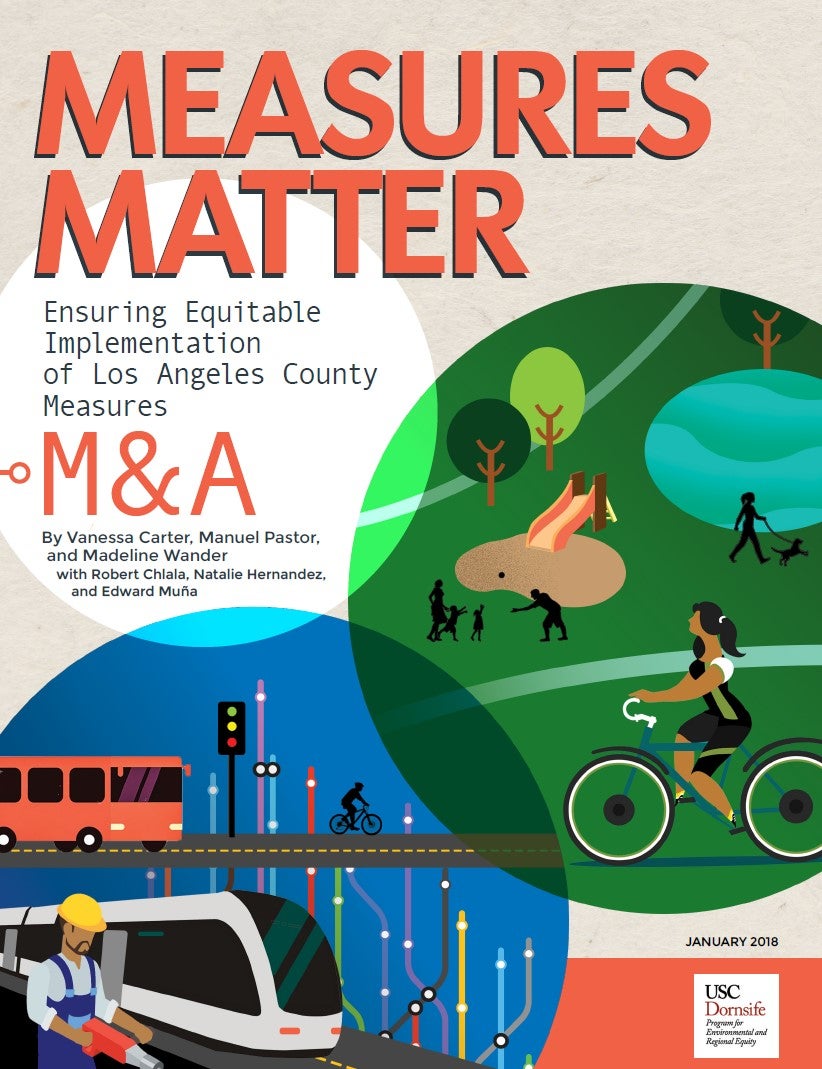
By Vanessa Carter, Manuel Pastor, and Madeline Wander
with Robert Chlala, Natalie Hernandez, and Edward Muña
In November 2016, Los Angeles County voters approved ballot measures to invest public funding into infrastructure that will improve the sustainability, connectivity, and livability of our region: Measure M for the build-out of our transportation infrastructure and Measure A for parks and open space. To ensure that these funding streams are invested equitably will require strong and coordinated implementation.
The primary purpose of this project is the creation of a framework for equitable implementation. We define equitable implementation as:
PAST | Prioritizes investments that will close racialized gaps, especially by wealth, environmental burden, and existing amenities in a way that will improve work and economic and health opportunities for underinvested communities.
PRESENT | Involves partnership throughout the process that centers the perspectives of vulnerable communities, that supports authentic community-based participation and power, and that results in shared decision-making, while also strengthening the health and well-being of the entire region.
FUTURE | Takes into account the future by leveraging funding for long-term community health and organizational capacity, mitigates future harm that may result for new investments in a place, and incorporates metrics and evaluation to promote adaptable and effective implementation.
Through this project, we provide this definition and principles for equitable implementation, offer a process for getting there, as well as metrics to track (and ensure) progress. The results of this research are intended for all audiences: policy-makers, agency staff, community organizers, funders, and more. This work was commissioned by the Los Angeles Funders Collaborative.
Download report
Implementation Timelines
Lead Analysts: Natalie Hernandez and Edward Muna
Last Update: 3/5/18
Below, we offer strategic implementation timelines with future opportunities for equity stakeholders to impact the implementation of Measures M and A. Each timeline includes events ranging from County Board of Supervisor meetings to meetings of implementation bodies to community engagement events. These timelines were built in the fall of 2017 and stakeholders should anticipate that events will evolve and be added. For more information on the events/meetings listed, see the links at the end.
Please check back occasionally, as they may be updated.
Measure M Timeline
Measure A Timeline
Maps
In November 2016, Los Angeles County voters approved ballot measures to invest public funding into infrastructure that will improve the sustainability, connectivity, and livability of our region: Measure M for the build out of our transportation infrastructure and Measure A for parks and open space. To ensure that these funding streams are invested equitably will require strong and coordinated implementation.
The primary purpose of this project is the creation of a framework for equitable implementation. Through this project, we provide this definition and principles for equitable implementation, offer a process for getting there, as well as metrics to track (and ensure) progress. The results of this research are intended for all audiences: policy-makers, agency staff, community organizers, funders, and more. This work was commissioned by the Los Angeles Funders Collaborative.
Posted on March 19, 2018
Disabled Persons in Poverty Living near Metro Rail Lines
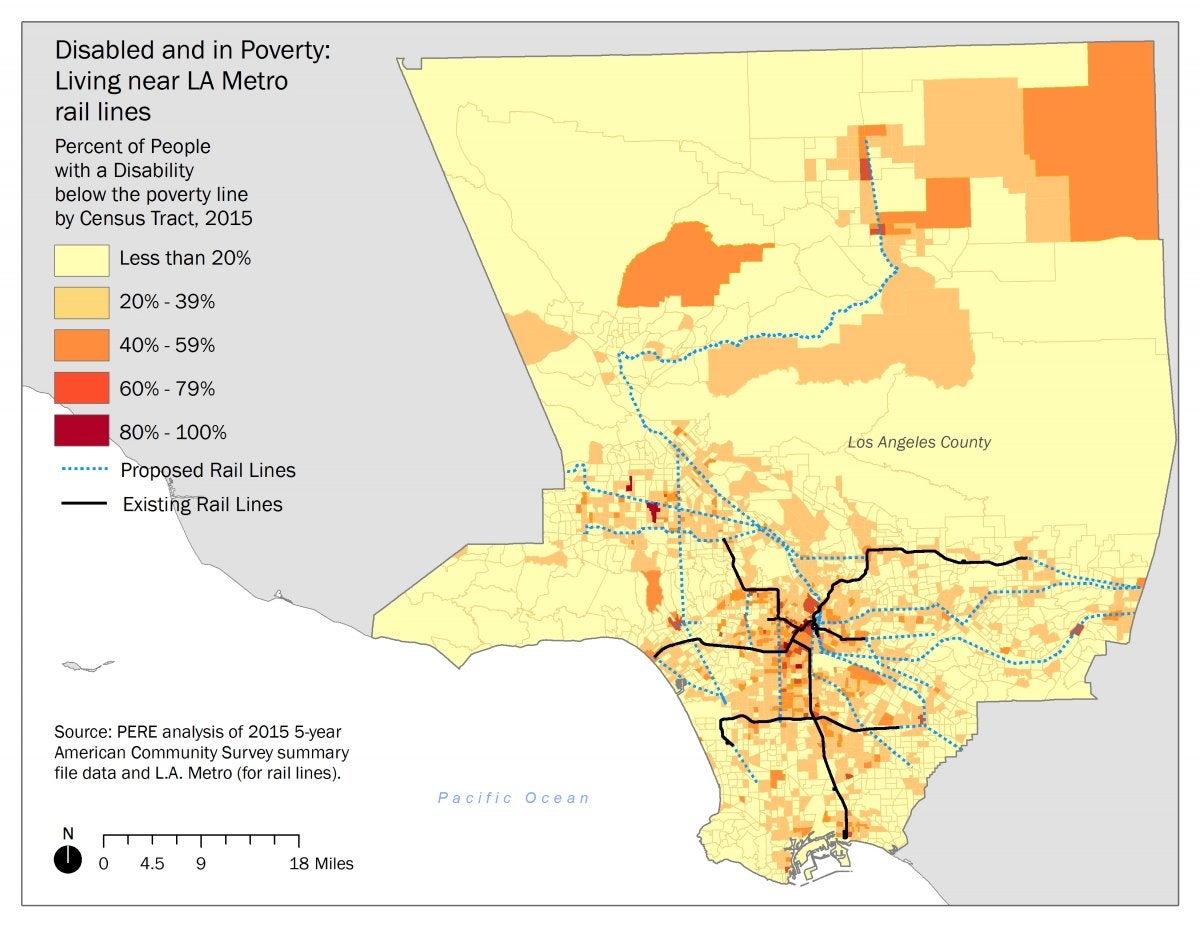
Dot Density Maps of Seniors and Disable Students Near Metro Rail Lines
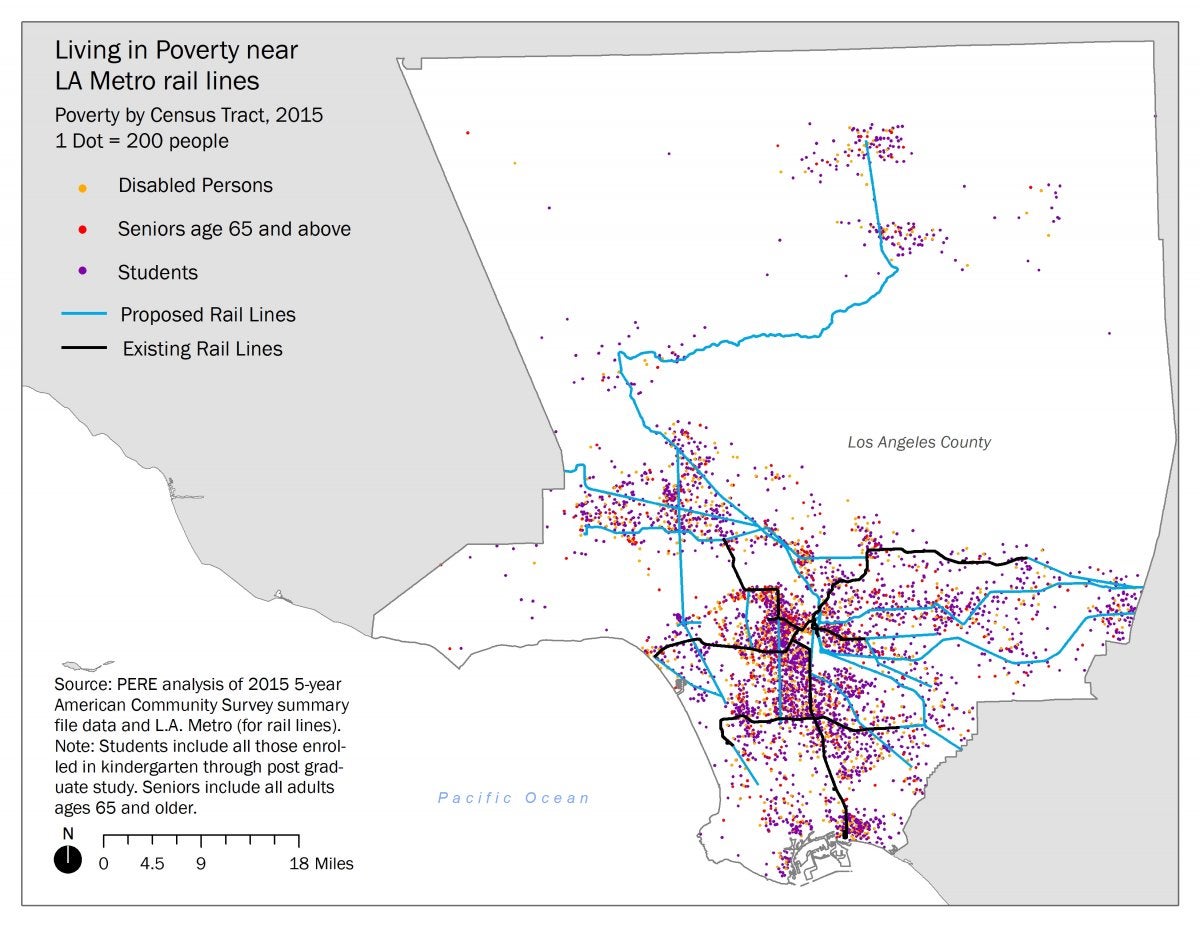
Seniors Living in Poverty Living Near Metro Rail Lines
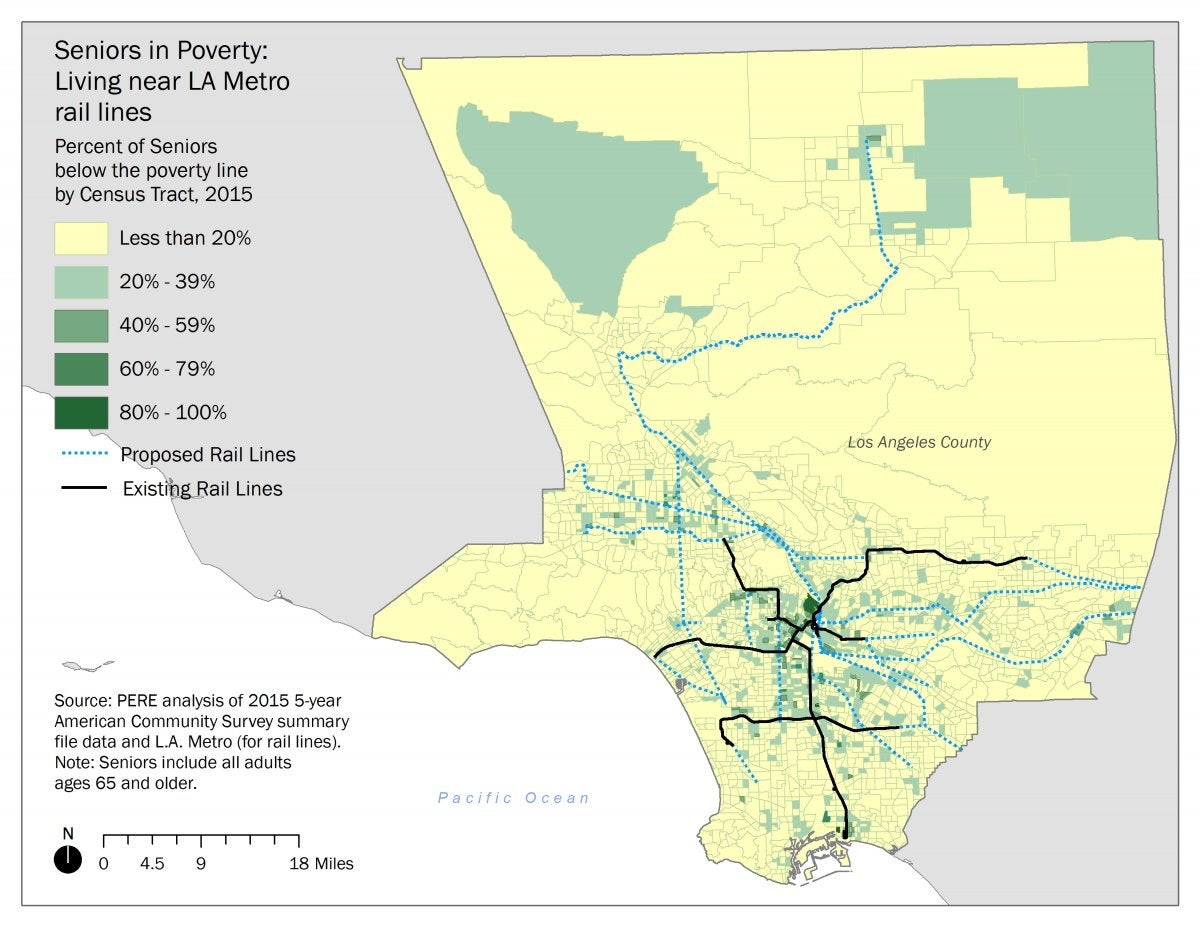
Students Living in Poverty Living Near Metro Rail Lines
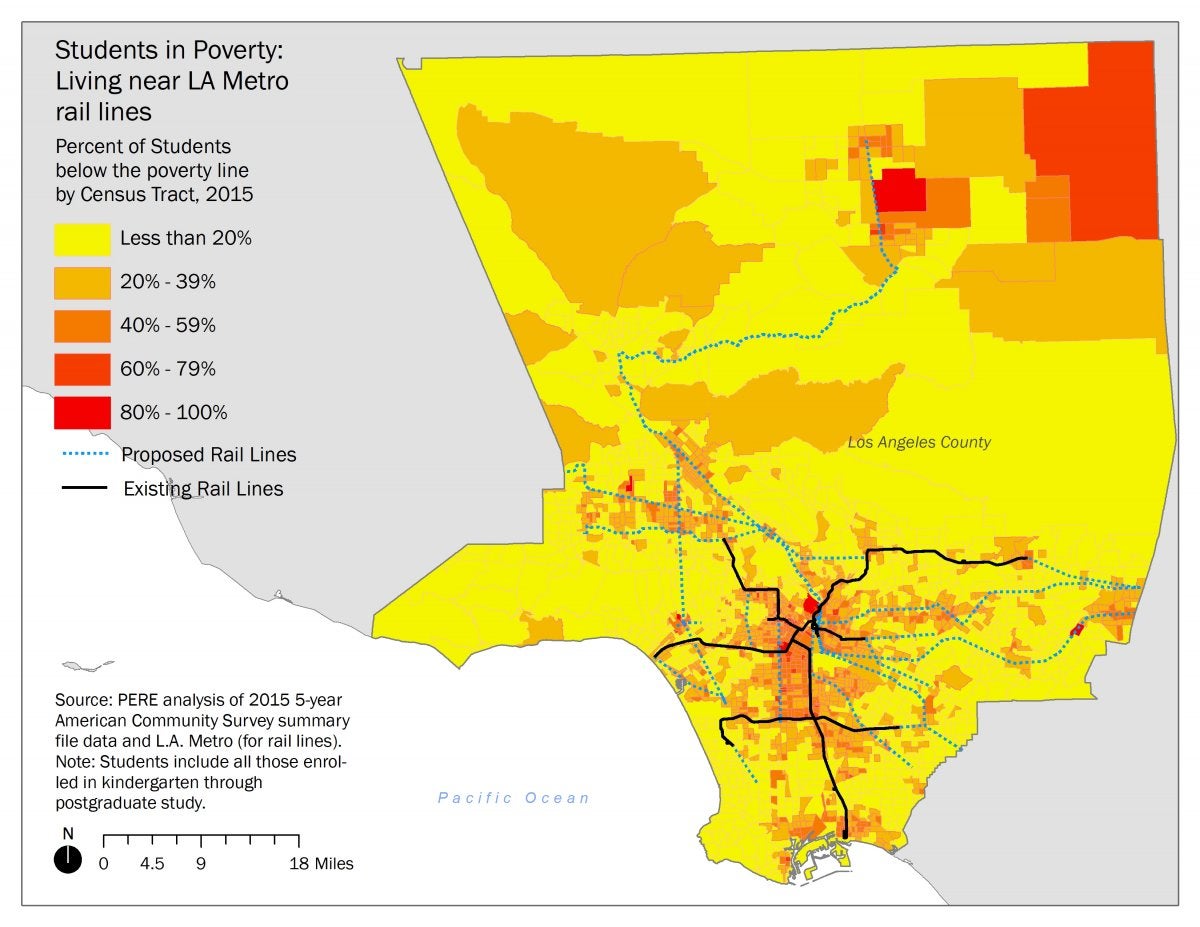
November 8, 2017



